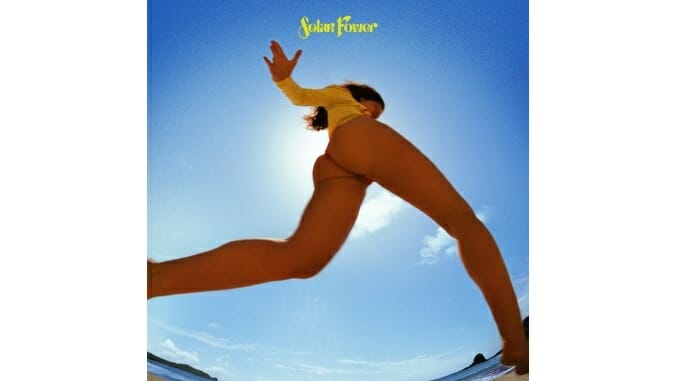Lorde’s Solar Power Is a Feel-Good Flex That Rebels Against the Traditions of Contemporary Pop
On her third record, the New Zealand songwriter smokes a lot of dope and throws a middle finger at the lingering side effects of her former teenage stardom

After ditching the freshman dream-pop standards of 2013’s Pure Heroine for a darker electro-pop vibe on 2017’s universally acclaimed Melodrama, the hype for Lorde’s third record was palpable and immediate. For years, her fans have flooded the cyberverse with demands for a follow-up to Melodrama. The yin to Frank Ocean’s teaser-heavy-but-no-new-projects yang, Lorde remained mostly silent for four years—exiling herself at home in New Zealand, abandoning her Twitter account and putting out a memoir, Going South, about her getaway to Antarctica in 2019. Yet in 2021, the 24-year-old pop star reappeared from the shadows with a new record in tow. Collaborating with producer Jack Antonoff again, the product, Solar Power, is Lorde’s self-proclaimed “weed album.” But it’s just as much a self-imposed critique of the young fame she’s procured, transfixed on excavating an escape route from the pits of her million-dollar quarter-life crisis.
Let’s set the record straight: Solar Power isn’t the Melodrama sequel everyone spent almost a half-decade pining for. Though Lorde was inspired by her chagrin with fame on her sophomore release, she instead used it to chronicle her first breakup. On Solar Power, she nosedives fully into escapism, touting her Antarctica getaway as inspiration for her departure from superficial lyrics once primed for the limelight. Refusing to copy the same transgressions as other pop stars on autopilot, Lorde marks a tonal shift in her short discography with a record honing in on her influences of ‘70s Laurel Canyon pop, ditching the goth electronics of Melodrama. Solar Power is psychedelic in sound and intent, especially when Antonoff’s thin, shimmering guitar tones pair with Lorde’s vocal displeasure for the surroundings forced onto her by the industry. It’s a modern take on Joni Mitchell’s Court and Spark, with less masterful takes on romantic inadequacy, but just as much warm replayability.
Ahead of the record’s release, the Solar Power singles (the title track, “Stoned at the Nail Salon” and “Mood Ring”) didn’t wow on their own, but when listened to in context with the rest of the record, they each offer their own spectacularity. Specifically, “Stoned at the Nail Salon” appeared to lean hard into its own title, and the lyrics initially felt too unrealized, often circling around the distance between Lorde and her past self for a few verses too long. But when bleeding into “Fallen Fruit,” her op-ed about climate change, in which Lorde asks, “But how can I love what I know I am / Gonna lose,” her vision becomes clear: She’s seen the shitshow of the world and just wants to peace out, smoke a bowl and walk hand-in-hand with her girlfriends through psychedelic gardens. And, honestly, me too, bestie.
-

-

-

-

-

-

-

-

-

-

-

-

-

-

-

-

-

-

-

-

-

-

-

-

-

-

-

-

-

-

-

-

-

-

-

-

-

-

-

-








































